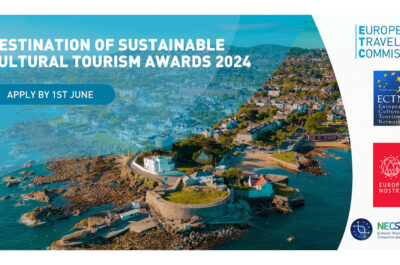WORLD TRAVEL MARKET – LONDON – REPORT: ETC estimates that 56% of visitors from non-European markets that arrived in European destinations in 2014 required a visa. These visitors from the largely long-haul source markets are amongst the most valuable because they tend to stay longer and spend more per day than the average visitor.
WORLD TRAVEL MARKET – LONDON – REPORT: The European Travel Commission (ETC), the organisation responsible for promoting Europe as a destination, called for reform of the way visas are granted to leisure and business travellers and it said the benefit to Europe’s economy could be in excess of 114 billion euros in export revenue and 615,000 new jobs by 2020.
At a press conference at the World Travel Market in London, Peter De Wilde, President of ETC, said: “Europe is losing share of global tourism arrivals and our visa regimes are a contributory factor in this decline. It is the view of ETC that liberalisation of Europe/s visa regimes for leisure travellers is essential for the Continent to maximise its share of the benefit from global tourism growth in the decades ahead”. And he called for immediate action: “It is within our power to change this and to improve our tourism competitiveness. At a time when Europe needs to create new employment, particularly amongst our youth, pro-tourism policy initiatives can deliver a strong return on investment and can do so in a relatively short timeframe”.
Europe’s visa regimes are among the most restrictive in the world according to the United Nation’s World Tourism Organisation (UNWTO). ETC estimates that 56% of visitors from non-European markets that arrived in European destinations in 2014 required a visa. These visitors from the largely long-haul source markets are amongst the most valuable because they tend to stay longer and spend more per day than the average visitor.
Mark Henry, Vice-President and Coordinator of ETC’s visa advocacy work, presented a range of practical initiatives to deliver improved openness in ways that avoid compromising security or immigration control. ETC/s recommendations for action include: First is the adoption of ¨Best Practice¨ improvements for the current available visa types to ease the administrative burden for tourists, such as the implementation of simplified application processes, reduced application fees, and lengthening visa validity. Second is the greater deployment of new visa types, in particular greater adoption of electronic visas and visas on arrival. And third is the continued growth in the list of nations whose citizens can access Europe visa-free.
To assess the potential impact on the economy, ETC briefed Tourism Economics to undertake an analysis of the impact for Continental Europe[1] of each of these three degrees of liberalisation (benchmarked against no reform) for 10 priority source markets, which together account for more than half (53%) of the visa-constrained visits to European destinations. These priority markets are: China, Russia, India, Turkey, Indonesia, Belarus, Tunisia, Saudi Arabia, South Africa and Thailand. They were selected for their size and growth potential as well as their population’s propensity to travel.
David Goodger, Tourism Economics’ Director, explained that adopting the ‘Best Practice’ policies for the ten profiled markets would generate 3.4 million additional arrivals to European destinations each year by 2020. This would involve a cumulative total of 18.3 billion euros in associated tourism spending over the period to 2020 and 95,000 new jobs.
Offering new visa types, such as an eVisa or visa on arrival, would further reduce the burden on travellers and would help fuel stronger economic growth in subsequent years. The impact would be 8.5 million more annual visitor arrivals, a cumulative total of 45 billion euros in additional spending and more than 200,000 additional jobs over the period. The largest benefits would flow from a complete visa waiver for these markets, in which case 21.8 million additional arrivals per year would be expected. Over the period to 2020, this would generate 114 billion euros in new export revenue and 615,000 additional jobs, including direct, indirect and induced employment.
Photo caption (left to right): Helen Marano, Vice-President Government and Industry Affairs, WTTC; Peter de Wilde, President ETC; David Goodger, Director, Tourism Economics; Mark Henry, Vice President, ETC (PRNewsFoto/The European Travel Commission).
Vicky is the co-founder of TravelDailyNews Media Network where she is the Editor-in Chief. She is also responsible for the daily operation and the financial policy. She holds a Bachelor's degree in Tourism Business Administration from the Technical University of Athens and a Master in Business Administration (MBA) from the University of Wales.
She has many years of both academic and industrial experience within the travel industry. She has written/edited numerous articles in various tourism magazines.

































































































































































































































